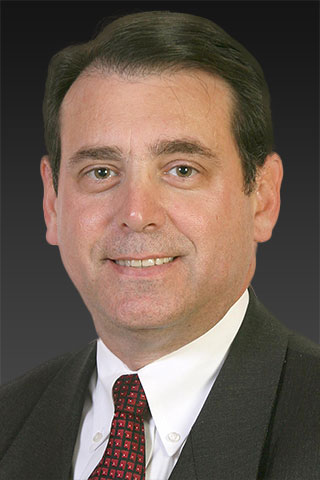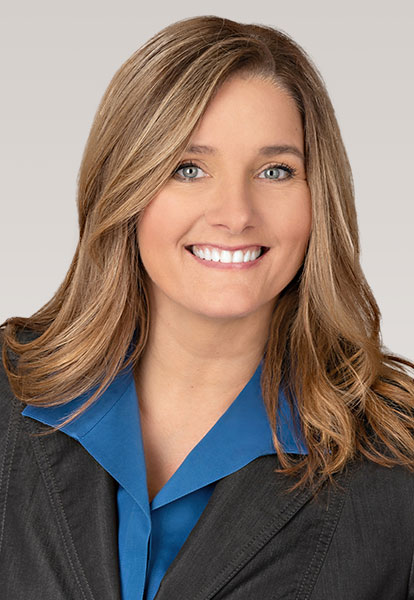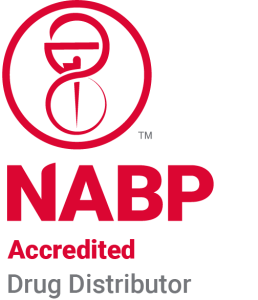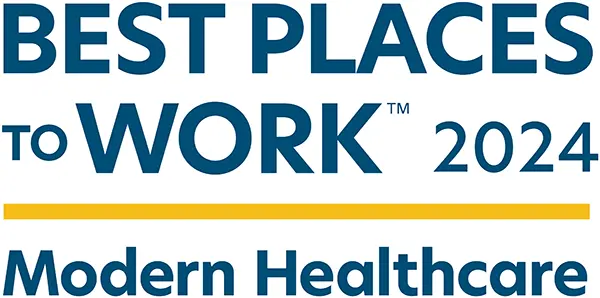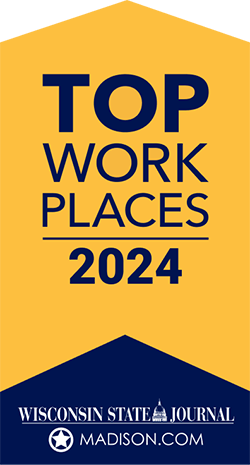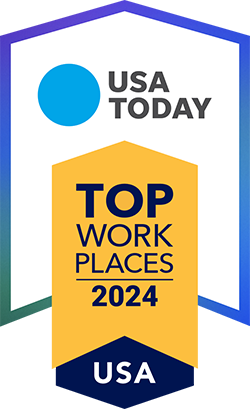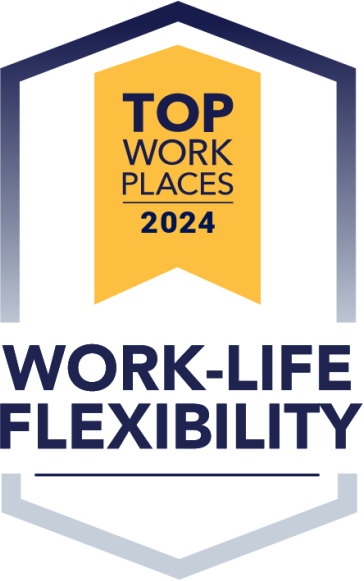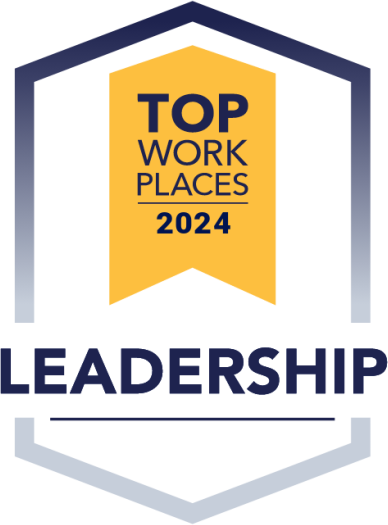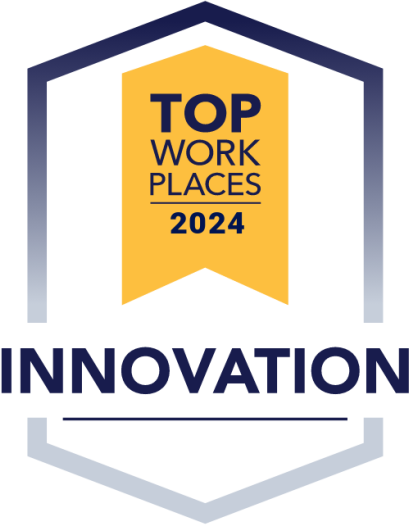IPC is honored to have hosted Todd Eury and the Pharmacy Podcast Network in our booth at the 2023 NCPA Annual Convention in Orlando this October. Take a listen to this second edition of the Recap including interviews with powerhouse industry leaders such as:
John Covello, Director of Government Relations at IPC
Kelli Stoval, RPh, VP of Pharmacy Services at IPC
Ken Thai, CEO at 986 Pharmacy
Marie Wilda, Founder/CEO at Lenkai
The NCPA 2023 Annual Convention is an important moment each year to gain insights and key strategies to bring to your pharmacy.
This podcast is part of a series.
- Listen to episode one.
- Listen to episode three.
Transcript
Announcer 1 (00:06):
You are listening to the Pharmacy Podcast Network.
Todd Eury (00:14):
Hey, this is Todd Eury, CEO of the Pharmacy Podcast Network. We’re here live in Orlando, Florida at the National Community Pharmacist Association’s 2023 coverage show. We can’t wait for you to hear these amazing interviews.
Announcer 2 (00:29):
Welcome to the Pharmacy Podcast Networks, press coverage of the National Community Pharmacy Associations annual conference. Hundreds of pharmacists, pharmacy owners, technicians, and students attended the 2023 and CPA annual convention at the Orange County Convention Center in Orlando between October 14th and October 17th. Thank you to the Independent Pharmacy Cooperative, known as IPC for being our media support sponsor for this three-part series. And now here’s our host, CEO and founder of the PPN, Todd Eury.
Todd Eury (01:03):
John Covello, IPC. We’re here at the booth at the NCPA 2023. It’s so nice to have you,
John Covello (01:08):
Todd. Thank you so much. I’m glad we’re able to do this today. Thank you for being here to do this.
Todd Eury (01:12):
You are so welcome. I follow you on LinkedIn mostly, and you put out a ton of information that teaches me what’s going on. And as a publicist, I look forward to your posts because now I’m able to go out to the Google sphere and actually search for what you’re talking about and find more information. But you were talking to me about Medicaid, which is a very confusing subject for a lot of people listening. Definitely for me, give us an update from your perspective.
John Covello (01:39):
Sure. And just very quickly for your listeners, I’m our government relations director, so I do both state and federal advocacy and a lot of the grassroots get our members involved. But we, six years ago, actually closer to eight now in Ohio, first were involved with what happened at the ground level of finding that stores were getting paid less and through their investigation, the state was still being charged at the rate. That’s what this notion of spread pricing is what it’s really evolved into States after states were finding out they were getting overbuilt. So we worked very closely in Ohio on taking that state after state to show the pattern of what happened, to advocate and educate, to get them to change it. And in state after state, they’ve done this, they’ve actually saved money and it’s done three things. Taxpayers save money, patients get all their prescription met because stores are getting fully paid for that, and they don’t have to turn away scripts so they can fully serve the patient. The only loser in it was the MCOs and PBMs that were manipulating the system. That’s happened in about eight states. But here’s the important thing, Todd, these successes of what we’re doing to get everybody to wake up and advocate, yes, for the stores, but for their communities and their patients of where the disruption has been, an economic harm that we heard about at this convention is now getting attention where it’s percolating up to Washington and all these successes have built, and we’ve been very, very involved working with our partner, NCPA and even NACDS and other actors in the stakeholders, the pharmacy to educate Washington. They needed to change. And for the third Congress in a row, now we’ve advanced bills to make that mandate of these fixes of pay, the NACDS , pay the drug costs, and a professional fee. And that’s all the PBMs charge to the government. Medicaid, a federal mandate under the Medicaid federal law. And despite the chaos in Washington right now, that Bill is ready to go. It’s just a matter of the process there of getting them back to voting on bills and the federal government. I always say this, look at all these studies done, and that’s what we educate on. It’s not the industry saying this. They’ve documented between overbilling, between studies of what’s happening between the settlements of lawsuits, Medicaid fraud lawsuits by again Centene. This is over $2 billion. States have identified the federal government expects to save at least a billion dollars on justice fix. And believe me, with what you’re seeing going on with spending in Washington, they’re looking for things that they can change in policy that translate to saving money. So this is what we try and do. We try and make a positive direct impact our advocacy efforts where it matters to the stores of what they’ll see in their operations to better serve their patients, more economically operate, and then being able to grow beyond that. So we’re a big, big proponent of more billing for services. The lessons learned from Covid, it’s documented, don’t believe me, Todd. Look it up.
(04:55)
There’s been a report done by AQVI who gets all claims data, all healthcare pharmacists far and away gave out most of the covid treatments of vaccinations and covid treatments. So we’re trying to capitalize on all of this, but I appreciate you helping us amplify that message and really hopefully encouraging more members. Nothing special. I am dedicated to what I’m doing. I love what I do, and I’m a policy professional and advocate, but I have the real secret sauce behind me of all of these members because they know their communities, they know their patients, and they really know policymakers, constituents closer and better with them. And it’s a matter of just now fighting not just for themselves, but for the people in the communities they serve. So I feel very optimistic for the first time in 17 years of being in this industry that the last couple of years, a trend from covid, we’re getting everybody engaged and energized to make these changes. But as you know from following these things, change in the world of government policy doesn’t happen quickly, and you have to be persistent. But I really look forward, Todd, to taking this opportunity that your listeners will learn a little something and feel a little better. And I believe all this is about a dialogue, and I look forward to more opportunities where we can get maybe one or two of these just on a specific issue where we can dive little.
Todd Eury (06:30):
Absolutely. We want to have you back. I’d like to actually appreciate the PBM Reform podcast because of your understanding. And we’re excited because we bring in people that know how to build conversations with stakeholders, with government officials, with our Congress, get Buddy Carter back, get Shane Reeves back, people that are serving their state senate, their state Congress, mash ’em up together so that we can get more information to Congress. People who just don’t understand the complexities of insurance and of PBMs and of Medicaid. I mean, it’s confusing. It’s hard to navigate.
John Covello (07:07):
It’s the policy makers, those in the community as the provider serving the patients, or ultimately the end payers, whether it’s government or businesses, everybody is starting to wake up to the fact nobody’s containing drug costs. So you’re doing a valuable service, not just to our industry, which I thank you for, but to everybody because the more focus on this, the clearer the problem is, and what I feel hopeful about through using Medicaid managed care reform as an example, there’s a pathway to fix the problem. And that doesn’t happen all that clearly where we’ve gotten such bipartisan support, I don’t care if it’s a blue state, red state, purple state in Washington, you have members of all levels of the political spectrum agreeing on this. We have to work to make the change in how prescription drug benefits are covered and paid for and who’s accountable on how it’s being run. So Todd, again, I just thank you for making this opportunity to keep spreading that word. And I know Coke doesn’t advertise once and done, so it’s always about message repetitions, right? It is. And we’ll have more opportunities to keep the dialogue going.
Todd Eury (08:15):
We look forward to it, John, Thank you.
John Covello (08:16):
I look forward to it too. Thank you very much.
Todd Eury (08:25):
Clinical services and getting paid for clinical services, those are two big, I mean, I can say clinical service, getting paid for clinical services. There’s a gap between what I just said. Yes, Kelli, introduce yourself to our listeners and tell them about your mission here at IPC.
Kelli Stovall (08:40):
My name is Kelli Stovall and I’m vice President of Pharmacy Services at IPC. I’m a pharmacist. My career started out in independent pharmacy. Even before I went to pharmacy school, I began working at a small, independent in rural Arkansas. So I was able to see firsthand how a pharmacist and a community pharmacy actually affects the healthcare of a small rural area. And so I still have that passion. I remember the difference that I saw our pharmacists make in many people’s lives in that community. So now at IPC, I worked in independent pharmacy behind the counter for over 20 years. And so now at IPC, I have the opportunity to work with peer group, really pharmacists, independent pharmacy owners, and help them implement clinical programs and also find money that they may have sitting on the table that they haven’t collected, whether it be payer performance plans, whether it’s reimbursements because of inadequate metrics.
(09:50)
And so we do that as well. So we’ll help them set up point of care testing plans. We’ll help them set up vaccination programs that, of course, covid, that opened everybody’s eyes to the importance of vaccination programs. But there’s also, you can go beyond that with travel vaccinations, RSV, now that’s going to be available. And so there’s so much you can do there and market to different populations. In fact, we have some stores that have a lot of vaccination programs around the colleges that are close to them. So we look at that. We also will do education on 340 B. 340 B obviously is a good opportunity for a lot of stores, and we’ll do education on that. We’ll help review contracts and help folks get into that and stay into that where it’s still a good revenue stream.
Todd Eury (10:46):
So I’m curious about testing. And when I think of testing, I get it. You do the COVID test, it comes back negative, positive, you take action at that point. But then there’s other testing that is going to be coming out of IPC and other organizations that you’re going to be able to react to something. What other disease state, what other condition is going to be important for testing? And then being able to make suggestions to the physician or actually just take action based on being a clinical pharmacist.
Kelli Stovall (11:24):
Oh, so much is out there. I feel like we’re at the crossroads, if you will, of so many opportunities that we’ve waited for and worked toward for so long with point of care testing. You’ve got flu, you’ve got strep, you can do those viral conditions and get a positive or a negative, and the patient can then take that to the physician. Or if it’s a test and treat state, they can then issue a prescription for that medication to cover that. As far as home testing, one of the things we are doing with the digital health program is home health kit testing. So we have say an STI panel, and we were talking with a member this morning and he’s near a college and he does a lot of that. And so it allows that diagnosis to start a lot sooner because there may be, it’s a little bit more comfortable sometimes to walk into a pharmacy to discuss those things rather than perhaps make an appointment with a provider or a physician provider and go that route. So, I think that it will allow consumers to really be more proactive about their healthcare. And I think that’s really the key with pharmacy is that you can really be more proactive as a consumer when you walk into a store and discuss this, your symptoms or your diseases with the pharmacist, and feel comfortable with that and trust that the advice is going to be quality advice.
Todd Eury (13:05):
Kelli, thank you so much for being part of this show and sharing your insights with us. Thank you,
Todd Eury (13:15):
Ken. Thai, so good to see you here at NCPA 2023.
Ken Thai (13:20):
I know. It’s always a pleasure, man. It’s like just seeing old friends, so especially yourself, I mean, I always look forward to seeing you.
Todd Eury (13:27):
Yeah. You told me a story that when you told me I had to get it on the post show to really show how community pharmacies are standing out and how through what the pandemic taught us about testing and immunizations, that it’s carrying over into a lot of people who now have influence to advance community pharmacies being better supported, better paid and pushed. And being a California based community pharmacy owner, you have some advantages for some of the provider status, but you got some big exposure through a meeting and immunization that you did. So share that with our listeners.
Ken Thai (14:08):
Well, yeah, I mean, honestly, I had no idea what I was getting into, but I was told by my team that we were graciously invited to one of the immunization events that we typically host with the community. It was actually at a skilled nursing facility. And of course, I didn’t really know what the implications were other than the fact they say, Hey, the CDC might be there. And I’m like, oh, okay. And of course, we worked so closely with LA County that it was commonplace. We’d go to 15, 20, 30, sometimes 50 a month of these different events. And so I showed up with my team, and of course, the CDC director, Manny Cohen was there and get a chance to meet her as the director of LA County Public Health, Barbara Ferrera. And they said, Hey, can you immunize me today and give me the covid vaccine? And I was like, wow, that’s amazing. Especially coming from quite honestly, such a highly esteemed member of our healthcare team, the CDC director. And of course she herself is a very well respected physician. And as a pharmacist, to be in a position where I could represent independent pharmacists, community pharmacists and vaccinating her was just a huge honor, quite honestly. And so we were just very excited to be in that position. And honestly, just on behalf of all community pharmacists,
Todd Eury (15:37):
So community pharmacy owners are a little nervous about the coming year in 2024, and the first quarter is going to be kind of tight with some of the adjustments that have been made to DIR fees and where they’re collected, how they’re collected. How has 986 pharmacies, how have you insulated yourself from the pinch that that’s going to create?
Ken Thai (16:01):
Well, first of all is the pinch is real. I mean, it’s definitely going to happen. But the good thing is I always felt that change. And by the way, I mean even though we haven’t gotten rid of DIR fees, the fact that it’s at the point of sales is a huge step in the right direction. So that’s something that quite honestly is not new. We’ve known about this for about a year and a half, two years now. And so we’ve had a chance to really prep ourselves from a cashflow perspective, from a financial projections perspective to ensure that we’re fully insulated when the time comes for us to, well, for this particular litigation, I mean legislative sort of implementation to carry out in 2024. So I think we’re okay. I think we’ve already quite honestly planned for this day, and I’m hoping that most of my colleagues have done the same because everything’s about preparation.
(16:55)
If you’re unfortunately looking at the clock and looking at the calendar and saying, Hey, let’s start doing something about it right now, I think I’ll be a little concerned, right? I am not saying you’re in dire straits, but it might be a little tighter for you from the cashflow perspective. But us as a group, my partners, everybody else, I think we’re in a good position. I do feel that we’re ready for it. We’re not necessarily looking forward to it, but we’re ready for it. And ultimately, it’s for the good greater good because to have at least to know exactly what you get paid versus having that uncertainty of not quite knowing whether or not you’re going to make money or not on a prescription that you feel, I think this is better. Yeah, this is better.
Todd Eury (17:40):
I see pictures of you on social media, I see posts about you, and something that you constantly do is you raise up your team. You’re constantly telling me how it’s the team that is making things happen. And I just think that you as a leader, putting your team first, that means a lot to me because I feel like that same way in my tiny, tiny little team. But I look at leadership the same way that you do.
Ken Thai (18:08):
Yea, and I totally agree. And it’s so funny. I’m wearing my NCPA hat here. Our slogan here is Team up. I’m sure you’ve seen it all over the exhibit floor as well as throughout the conference. And I think it really holds true. I mean, nobody can do anything at any large scale by themselves. And I feel the same. I feel I have a small and mighty team, because ultimately that’s how we are able to get where we are. And whether it’s you or me, I get to be lucky to be in front of you and talking and representing them and sharing with you some of the great things that have happened. But none of this is going to happen without all the hard work. Quite honestly, the boots on the ground efforts that they’re putting forth, even going back to the discussion about the opportunity to vaccinate our CDC director, I’m sorry, they were the ones that were out there vaccinating the hundreds of thousands of individuals to get us on the map so that they felt that, Hey, we want these guys to be out here representing community pharmacists and vaccinating me.
(19:11)
So I give ’em all the credit, man, I just, I’ve been very blessed to be in a position where I get to, quite honestly be in the photo. I mean, that’s all I can say. So at the end of the day, these are things where I think both of us have talked on multiple occasions about how important this team is, people that do all the hard work behind the scenes so that we can do what we do. And yeah, I’m very grateful. And of course, I think NCPA especially feels the same way, and that’s why they, again, have used this as essentially their slogan for this particular conference. Yep.
Todd Eury (19:41):
Dr. Ken Tai, we always enjoy talking with you. Thanks for being part of the NCPA post show.
Ken Thai (19:46):
No, thank you. Always a pleasure. Thank you, Todd. Appreciate it. Thank you.
Todd Eury (19:54):
When I go to pharmacy conferences and I run into Marie Wild, it’s exciting to see you again. I think the last time we were at a conference was diversify our Rx profit summit. That’s right.
Marie Wilda (20:05):
Yeah. I was there with, would you like shots with that? My passion
Todd Eury (20:08):
Project. And you were on this weekend pharmacy. That’s right, yes. And we were talking about kind of the whole blowup of the national walkouts and how can’t, there’s an ecosystem, a macro ecosystem of pharmacy that when you start messing with payment metrics and models, it affects our employees. It affects our pharmacists, our technicians, the whole meaning in what would you like shots with that documentary. And I just think a lot of you, because you are vested, I am, neither of us are pharmacists, but we believe this is our home, this is our profession, and we take a lot of pride in it. That’s true.
Marie Wilda (20:47):
Yes. Yeah. I’m not a pharmacist. I often lead with that in the conversations. I don’t want to misrepresent any of it, but I believe so strongly in what independent pharmacy can bring to the table, but also pharmacy in general. One of the things that you said on that this week in Pharmacy podcast that we did was we don’t want CVS to go out of business. We need that access. So what I would like to see, what we would like to see is a level playing field for everybody who adds value to the healthcare system.
Todd Eury (21:20):
So you are building some services and some consultation abilities for pharmacy. So I want you to share with our listeners what you’re doing.
Marie Wilda (21:30):
Yeah. So I have created a system, it’s called Revamp 30, and it’s unlocking your revenue strategy in 30 days. So what I’ve done is basically taken 15 years of sales, marketing and event experience and created a process for you to, one, identify your core customer. What is the makeup of your community? What do they need? How do you provide that to them? How do you differentiate yourself and stand out? Where’s the market space? What is the persuasive strategy, the messaging matrix, and then the three to six marketing priorities that you need to implement in order to have a true revenue marketing and sales process in your pharmacy. So 30 days, it’s an offsite, we do data validation, and you walk away with the strategy. You can take it, you can throw it in a fireplace, you can give it to your team, and I can help them implement, or you can hire me to bring it to life. But ideally, what I wanted to provide was a turnkey. You can take it, implement. And I wanted to eliminate the, I think what marketers call throwing spaghetti against the wall and seeing what sticks. When I went out on my own, I found people knew what they wanted, but they didn’t know what they needed. And so that was the driver I need to tell and not even tell people because you can’t tell people. I needed to guide them to realize what they need before they can start to implement what they want.
Todd Eury (23:13):
Is there a potential client that you would consider the sweet spot client based on size or something else of pharmacy ownership or community versus long-term care? Explain that to our listeners too.
Marie Wilda (23:28):
Yeah. So I think that I ideally, look, I love the small pharmacies because it gives us an opportunity to grow together. I worked with pharmacies with seven locations and multiple locations. They are, I mean, it’s equally exciting because they have enough systems in place that it’s almost complimentary, and then you can hit the ground running relatively quickly. So I don’t think it’s an either or. I think the attribute in a pharmacy that’s ready for this system is the realization that they don’t know what they need. They’re not identifying their core customer, they’re not leveraging their data, and they’re ready to, right. They recognize that there is an urgent and expensive problem and they’re ready to address it. The pharmacy that still thinks you can throw up Facebook posts that still thinks that you can just pick a program for this month and focus on it, that’s not the right match. They’re not ready to look at it from a deeper, more strategic perspective. Does that provide a little bit of context?
Todd Eury (24:43):
Yeah, absolutely.
Marie Wilda (24:44):
You have To be ready. So if someone’s listening and they’re like, this is really interesting. I want to reach out to Marie. How do they get ahold of you?
(24:49):
So I’m on LinkedIn. It’s Marie Wilda, but my company is called Lenkai, LENKAi.co. But LinkedIn is kind of where I’m living right now. It’s me. I have a couple of part-time associates that I bring in and out of the organization, but LinkedIn is the best place to contact.
Todd Eury (25:12):
Me. Excellent. And your last name is Wilde?
Marie Wilda (25:15):
Yeah, like Wilda-beast.
Todd Eury(25:17):
Wilda, and she is a beast of community pharmacy improvement. Let’s go. Alright, very good. Well, I appreciate you being part of the 2023 post show, Here at NCPA. Before you go answer a quick question for me, why is it important to come to these conferences?
Marie Wilda (25:34):
Oh, the conversations. Look, I love conferences. That’s events in general. That’s another area that I’ve been involved in for many, many years.
Speaker 2 (25:46):
That’s how I met you was through PDS. Back in the day,
Marie Wilda (25:50):
You cannot, yes, virtual has its place in the world old, but it’s the conversations. It’s that serendipitous, oh, we ran into you. And this was the question. I sat in on a session where they were talking about point of care testing. I shared it with my pharmacy client and he’s like, find out who she is. Let’s get in touch and let’s figure out who we can start to implement because they’re coming in at the ground floor. But if I hadn’t walked in on that session, hadn’t shared that with my pharmacy, we would’ve still been trying to figure it out on our own. But it’s almost an accelerator.
Todd Eury (26:27):
Marie Wida, it’s good talking to you. As always, good to see you. Thank you for what you’re doing for the profession. Thank you for your work on, would you like shots with that too?
Marie Wilda (26:36):
Thank you. Thanks for having me. Alright.
